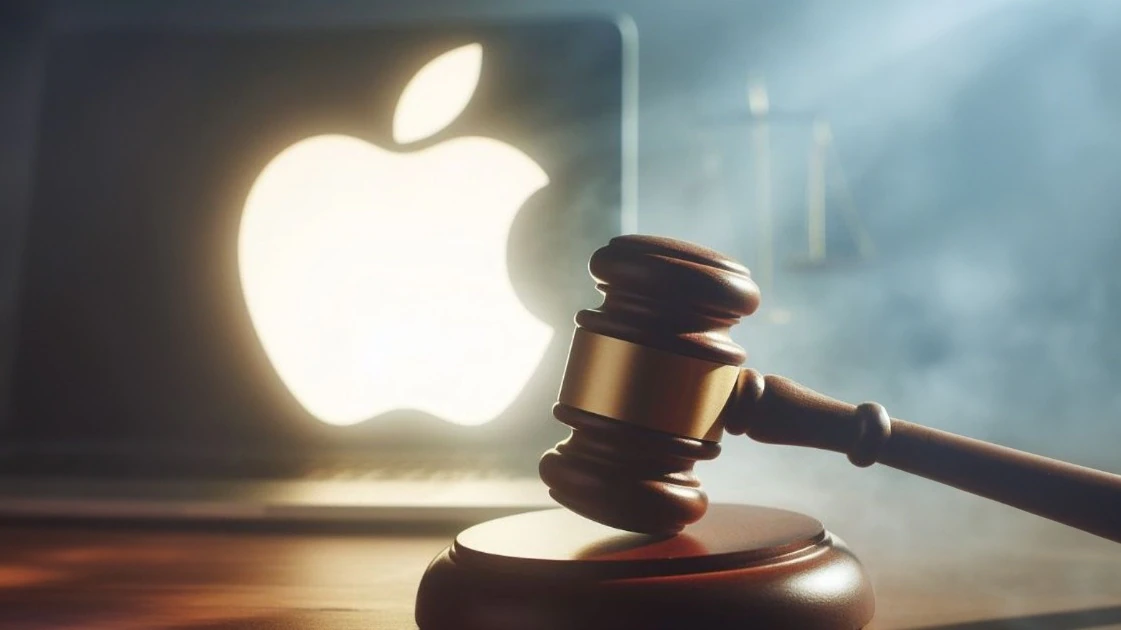Introduction
On Monday, June 24, 2024, European Union regulators announced that Apple is in violation of the Digital Markets Act (DMA).

The European Union has accused Apple of breaching the Digital Markets Act (DMA) due to its App Store practices. The European Commission’s preliminary findings indicate that Apple’s rules prevent app developers from steering consumers to alternative purchasing options outside the App Store. This is the first time a company has been found in breach of the DMA. Apple could face fines of up to 10% of its global annual turnover if found guilty. The company has stated that it believes its current practices comply with the law.
This development highlights ongoing concerns about the tech giant’s business practices, particularly its control over the App Store and the associated fees and restrictions.
Follow us on Linkedin for everything around Semiconductors & AI
Background on the Digital Markets Act
The Digital Markets Act (DMA) is a regulation by the European Union aimed at ensuring fair and competitive digital markets. It targets large digital platforms, known as “gatekeepers,” which have significant market power and control key access points for businesses and consumers.
Here are some key points about the DMA:
Gatekeepers: These are large online platforms that meet specific criteria related to their size, user base, and market influence. Examples include companies like Alphabet, Amazon, Apple, Meta, and Microsoft.
Obligations and Prohibitions: The DMA sets out a list of “do’s” and “don’ts” for gatekeepers. This includes prohibitions on combining data from different services, ensuring interoperability, and preventing self-preferencing practices.
Enforcement: The European Commission is responsible for enforcing the DMA. Non-compliance can result in fines of up to 10% of a company’s global annual turnover. The DMA aims to create a more level playing field in the digital sector, promoting innovation and giving consumers more choices23.
Read More: Foundry Fight Club: SMIC Knocks Global Foundries Out of Top 3 – techovedas
Key Points of the Accusation
Steering Practices:
- The European Union regulators allege that Apple is in breach of the DMA because it does not permit App Store customers to be directed to alternative purchasing options. This restriction limits consumer choice and competition, forcing users to remain within the confines of Apple’s ecosystem.
Excessive Fees:
- The regulators have raised concerns about the fees Apple charges developers for acquiring new customers through the App Store. According to the EU, these fees exceed what is necessary to cover Apple’s costs, suggesting a potential exploitation of its dominant market position to extract higher revenues from developers.
Third-Party App Stores and Sideloading:
- In addition to the above issues, the EU has initiated a new investigation into whether Apple’s policies regarding third-party app stores and the downloading of apps from websites comply with the DMA. This probe will scrutinize Apple’s rules that may prevent or hinder the use of third-party app stores on iOS devices.
Read More: Samsung to Introduce New 3D Packaging SAINT: HBM Goes Vertical – techovedas
Implications for Apple
The European Union’s accusations against Apple have significant implications for the tech giant. If found in violation of the DMA, Apple could face substantial fines and be compelled to alter its business practices to align with the new regulations. This could lead to:
- Increased Competition:
- Opening up the App Store to alternative payment methods and third-party app stores could foster greater competition, benefiting consumers and developers alike.
- Revenue Impact:
- Changes to fee structures and the potential loss of control over app distribution might affect Apple’s revenue from its services segment, which has been a growing part of its business model.
- Regulatory Precedent:
- The outcome of this case could set a precedent for other regulatory actions against Apple and similar tech giants in other jurisdictions, potentially leading to a broader shift in how digital marketplaces operate globally.
Apple’s Response
As of now, Apple has not released an official statement in response to the EU’s accusations. Historically, Apple has defended its App Store policies by emphasizing the security, privacy, and user experience benefits of its tightly controlled ecosystem. However, facing increasing regulatory scrutiny worldwide, Apple may need to reassess its strategies to navigate the evolving regulatory landscape.
Conclusion
The European Union’s accusations against Apple highlight the tension between regulators and tech giants over market practices and consumer rights. As the investigation unfolds, it is crucial to monitor how Apple addresses these challenges. Changes may be implemented to comply with the DMA. The outcome will impact Apple’s operations in Europe. It could also influence global regulatory approaches to digital markets and big tech companies.









